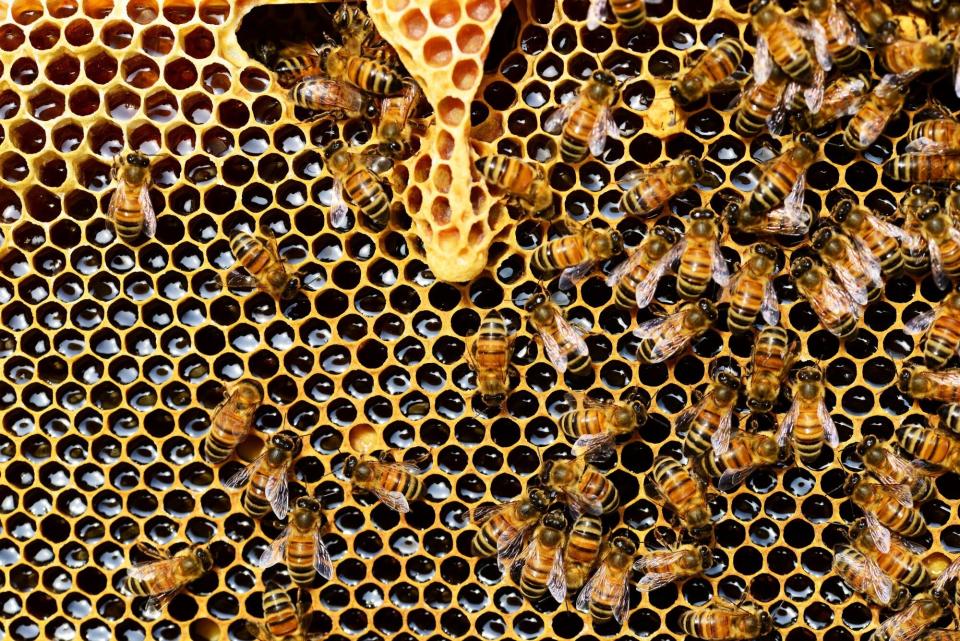How to Start Beekeeping in Your Backyard
Beekeeping is, to put it simply, all the buzz lately: As startling news reports come out that these critical pollinators are on the decline, more people are learning that they can make a difference and help increase honeybee populations by starting their own hives. That includes Summer and Kam Johnson, founders of Zach and Zoe Sweet Bee Farm based in rural New Jersey with a store in New York City's busy Chelsea Market. Since founding their own farm, they've reaped the honey sweet rewards. If beekeeping interests you, here are some tips from the Johnson family to get started.

Zach & Zoë Sweet Bee Farm
Related: Backyard Livestock 101—A Guide to the Most Common Animals for Urban Farming
First, check your local laws.
Like raising backyard chickens, different rules exist for backyard beekeeping. So before buying any bees or equipment, check with your local city, county, and state laws regulating beekeeping. The rules may say how many hives you can keep and how many feet a hive can be from property lines. Another smart (and kind) idea is to notify neighbors of your burgeoning hobby (and remember to repay their kindness with a jar of your honey).
Do your homework.
Beekeeping is more complex than you think, so start learning as much as you can about the art and science of raising honeybees. "Join your local beekeeping association, subscribe to American Bee Journal magazine, find a mentor, and be patient," suggests Summer, "as it can take a few seasons to really understand the process and annual cycle."
Consider the right hives.
Remember to start small so the beekeeping process isn't overwhelming. Summer Johnson recommends having at least two hives so you can compare and contrast. "Beekeeping can be challenging to learn in the early years," she says, "and so having more than one hive increases your learning and probability for success." The Johnson's leverage Italian honey bees because they are excellent for producing honey and fare well in the winter months which is important for those living in colder climates.
Get your kids involved.
Zach and Zoe Sweet Bee Farm is a full-on family-run business so no wonder the entire family is involved in beekeeping. In fact, Zach and Zoe routinely put on their bee suits and help their dad smoke out the bees and replenish the honey water. "There has been an increase in popularity for children learning about beekeeping," explains Summer. "It's incredibly safe, and they make beekeeping suits and equipment for all ages. Stings do happen on occasion but much less frequently with the right gear and care."
Enjoy the sweetness.
The obvious benefit of beekeeping is that you get to harvest your own honey which is nutritionally superior to many inexpensive grocery store brands. Raw, unfiltered honey is nutrient packed and contains vitamins, minerals and enzymes. But don't get too excited and harvest too much. "One of the biggest mistakes new beekeepers make is over harvesting honey without leaving enough for the bees," explains Summer. "This is important because the honey is their primary food source during the winter months when they can't leave the hive to forage for food."

